THOSE WHO TELL IT LIKE IT IS
THOSE WHO TELL IT LIKE IT IS
by Norman Warwick in memory of Justin TownesEarle
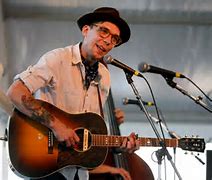
A status on Justin’s Facebook page read: “It is with tremendous sadness that we inform you of the passing of our son, husband, father and friend Justin. So many of you have relied on his music and lyrics over the years and we hope that his music will continue to guide you on your journeys.
“You will be missed dearly, Justin”
Justin – who was named after singer/songwriter Townes Van Zandt – battled addiction throughout his life.
In 2017, though, there was cause for optimism amongst his fans when he said: “I got all my craziness out of the way as a coffeehouse musician and a roadie.”
Not quite fitting easily into any musical classification, he nevertheless won the Americana Music Award for New and Emerging Artist of the Year in 2009. Two years later he received another Americana Music Award for Song of the Year thanks to his best-known hit ‘Harlem River Blues’.
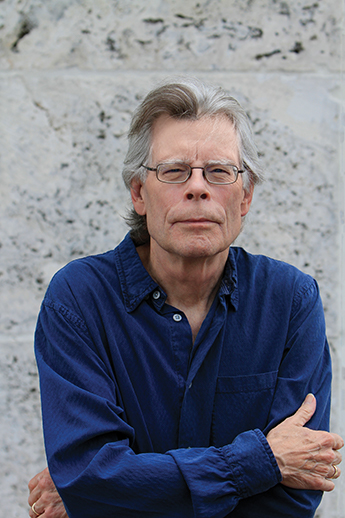
Several friends and fans took to social media to pay tribute to Justin – who leaves behind a wife and young daughter – including author Stephen King, (right)
He wrote: “It appears that Justin Townes Earle has died. I hope it’s a hoax but fear it is not. What a loss.”
Samantha Crain tweeted: “My friend, Justin Townes Earle, has passed away. Such a tremendous songwriter…he took me on 2 tours and always treated me so kindly….he understood struggle, he understood joy…I saw him at the peaks and valleys of both through the 13 years I knew him…we will miss you JT (sic)”
Margo Price, another brave singer-writer, who featured in a recent post here on Sidetracks & Detours wrote: ´sending love and condolences to Steve Earle and the entire family of Justin Townes Earle… he was always kind to me and he has gone too soon´.
We never expect our children to die young and we most of us want to feel we are leaving a more rewarding lifestyle, in every way, for our children than was available to us. I guess we all want to believe that each generation will be better off than the generation before.
We seek to ensure that economic benefits, political decision-making and personal health and safety will be more broadly and equally shared in each succeeding decade.
Whether such optimism can be sustained is a moot point, however, in the face of the evidence. Wealth and income seem ever less equally shared, and whilst we´re talking inequality we are reminded in an on line article, in June 2020,
https://www.pastemagazine.com/music/craig-finn/craig-finn-justin-townes-earle/
by Geoffrey Himes, The Curmudgeon, that two of the past five presidential elections have been claimed by the candidate who received fewer votes.

Geoffrey Himes has written about pop music on a weekly basis in the Washington Post since 1977, and has been a contributing editor to No Depression magazine since 1998. He has also written about pop music for Rolling Stone, the Oxford American, Musician Magazine, National Public Radio, Crawdaddy, Fi Magazine, Request Magazine, Downbeat Magazine, Country Music Magazine, Jazz Times, and scores of other other outlets. He has been honoured for Music Feature Writing by the Deems Taylor/ASCAP Awards and by the Music Journalism Awards.
Himes wrote two chapters for the book The Blackwell Guide to Recorded Country Music, and contributed entries to The Encyclopedia of Country Music, The Music Hound Folk Album Guide and The Rolling Stone Jazz & Blues Album Guide. He has written liner notes for albums by the Isley Brothers, the Beach Boys, Ray Wylie Hubbard, Carey Bell, Tony Rice, Chris Hillman, Beau Jocque, Earl King and others. He is currently working on a book about Emmylou Harris, Rosanne Cash, Rodney Crowell and Ricky Skaggs for the Country Music Hall of Fame.
Himes has lived in Baltimore since 1974. His lyrics have been recorded by Billy Kemp & the Paradise Rockers, the Kinsey Report, Mojo Filter, Edge City and Pete Kennedy & Bound for Glory.
In a Himes´ article titled The Sound Of Things Falling Apart, uublished on Paste on-line, it is clear that even amidst such cacophony he identifies what we hear as climate change exacerbating fire and flood across the continent, the ability to avoid and/or recover from disease and violence becoming more not less dependent on the colour of our skin, the genitals in our pants and the money in our pocket.
It perhaps goes without saying that this presents a challenge for songwriters or artists writing and portraying our times. The best of our songwriters are not prepared to offer what Himes calls ´a false panacea or an angry rant´.
Such large societal trends must be measured without resorting to vague abstract nouns, creaky allegories or empty sloganeering. As Leonard Cohen once urged us, ´do not stoop to strategies like this´.
Himes is keen to point out, though, that a handful of albums, released in 2020, have been especially successful at meeting this challenge. Craig Finn’s I Need A New War and Justin Townes Earle’s The Saint Of Lost Causesnever identify the man in the dock as Donald Trump. These songwriters do not turn their songs into manifestoes full of phrases like ´income inequality,´ ´climate change´ or ´voter suppression.´
Yet they paint a picture of America in the first decade of the twenty first century, says The Curmudgeon, that seems truer and clearer than any other we’re likely to get in song.
Such songwriters narrow their focus to portraits of individuals who’ve discovered that the happiness promised by, sex, drugs, rock ’n’ roll, church and the American Dream has curdled by the time they reach forty. They never had much money to lose, but they had dreams and now they’re without those too. These characters are the canaries in the coal mine of modern America, crumpling from the poisons in the air before the rest of us are affected.
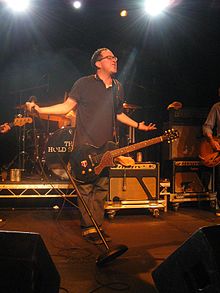
When Finn sings, ´I want to give you something to hope for,´ over punchy horns and female “la-la-las,” the intention is sincere but whether that promise can be delivered is clouded in doubt.. The song’s narrator is seeking to assure his girl that there’s something better in the mountains, away from this Rust Belt town with its sticky-floor taverns and nicotine-stained apartments. You know, that old promise about the other man´s grass !
We, the listeners, are only hearing one side of the conversation, but it’s clear that he’s not convincing her, and according to Himes, ´it’s not even clear he’s convinced himself !´
We have all suffered romantic betrayals and economic betrayals in the past, have always held on to a belief in something better, and the continual slow erosion of that belief may be the biggest betrayal of all.
Himes says that we also hear just one side of a conversation in Earle’s “Ahi Esta Mi Nina,” which is Spanish for “Here’s My Little Girl.” A Puerto Rican convict has just gotten off the bus in the Bowery after getting released from the Clinton Correctional Facility in Dannemora, New York. He runs into his daughter by chance and offers to buy her a coffee at the corner bodega.
We don’t hear her reply, but it’s clear that she’s resistant and resentful of a long-absent father whose decisions wrecked her family. The narrator doesn’t expect forgiveness; he just wants to share a cigarette and a coffee.
Both songs reflect astonishingly skilful writing. Using just one-half of a spoken dialogue, Finn and Earle each evoke a time, a place, a history and dreams so battered that even the most modest version of those once enormous hopes is hard to hang onto.
Himes suggests that anyone wanting to understand how a culture can become so embittered by the past, so entrenched in the present and so distrustful of the future, might find these two songs a good reference point from which to start.
Finn was, and is the lead singer of a great rock ’n’ roll band, The Hold Steady, which has now lapsed into a part-time endeavour. So, Finn has carved out a solo career that’s different in sound and perspective. While the band played songs with out-of- nowhere riffs and tumbling momentum about communities of young people trying to find their way.
Now, when performing or recording solo, Finn delivers quieter, moodier pieces about one or two people, a decade or two older, who’ve lost their way. On these projects, the words are out front where they can’t be ignored.
Whilst now ostensibly a solo act, Finn has found two key collaborators: producer/multi-instrumentalist Josh Kaufman and percussionist Joe Russo. This threesome has created what Himes describes as ´a shadowy rock-noir sound´ perfect for Finn’s four-minute stories, which have filled a trilogy of terrific albums: 2015’s Faith in the Future, 2017’s We All Want the Same Thingsand this year’s I Need a New War.
Justin Townes Earle bears the burden not only of his father Steve’s last name but also of Townes Van Zandt’s first name.
Against all odds, he has lived up to the expectations of his birth certificate with a concise, conversational lyric style that examines complicated relationships through three-minute songs. It took him a bit longer to find a musical identity to complement that particular type of lyricism, but on his third album, Harlem River Blues, he crafted a swinging country-blues sound that perfectly complemented his drawling tenor vocals.
The lyrics and music locked in on his 2012 masterpiece, Nothing’s Gonna Change the Way You Feel About Me Now, and The Saint of Lost Causes is that album’s companion.
He worked with his co-producer/bassist Adam Bednarik, topAmericana guitarists Joe McMahan and Paul Niehaus and Old Crow Medicine Show’s multi-instrumentalist Cory Younts. Together they created a soundtrack for those who have slipped through the cracks of the new American triumphalism.
The new album begins with the title track, a late-night reverie fuelled by wavering guitar reverb. The narrator sees himself as ´a wounded hound backed into a chain-link fence´ and the world around him as ´a big mean kid poking me through the fence with a stick´. That’s followed by a bouncy country-blues shuffle, a smart-ass complaint about not having any money. Those first two songs set the template for the whole disc: a ghostly reverie is followed by a funky blues stomp or a snappy hillbilly two-step, six of these quiet-then-lively pairs of songs add up to a dozen in all.
On Finn’s album, the verses tend to simmer with clipped rock ’n’ roll guitars and seething keyboards, while the choruses tend to erupt with horns, female vocals and harmonica. The verse lyrics begin the stories with crisp details of lives going off the rails, but when the big, romantic choruses come along, you expect the stories to take a similar turn to the upbeat. But they don’t—and out of that paradox emerges the album’s compelling drama. The most Finn allows us is the stoic acceptance of reduced expectations.
Finn, and his reviewer Himes, have somehow between them there found the headstone engraving for a generation
Magic Marker, for example, is the story of a Desert Storm veteran back home and trying to figure out how to jumpstart the rest of his life. After some hard partying, feeling “´wasted, wild and bored,” he does something illegal for a man and makes $16,000. He tries to double his money in Oregon, but gets pistol whipped so badly that he has trouble with numbers, even after the reconstructive surgery. Punchy, cheerful horns come in, but the expected happy ending doesn’t arrive. The narrator, now working at his uncle’s paint shop, stares at the pretty girls but they no longer look back.
On A Bathtub Ín The Kitchen, the narrator is someone who has moved on with his life and doesn’t know what to do with old friends who haven’t.
A similar contrast between optimistic music and pessimistic words sparks Talking To Myself, the final track on JT Earle´s The Saint Of Lost Causes.
A sweet pedal steel figure and a bouncy country two-step raise expectations of satisfied love and the comforts of home. Instead the narrator is living alone in a cheap apartment with only bad memories for company.
The album’s centerrepiece is Appalachian Nightmare, which supplies the details of how so many of the record’s characters wound up alone and desperate.
None of these are happy songs. These are the stories of folks who had the odds stacked against them and failed to clear the high hurdles. So why are we, the listeners, drawn to them? Perhaps it’s because these songs ring true in a soundscape of so many songs, newscasts, advertisements and social-media posts that ring false. These songs are not trying to sell or spin something, but neither are they trolling anybody. Finn and Earle aren’t softening the facts about these characters, but neither are they blaming or condemning them. They’re trying to inhabit their experience long enough to maybe understand how they got there.
Such acts of empathy are needed in any era but especially in this one, where only winners are celebrated and losers are forgotten. Most of the characters in Finn’s and Earle’s songs are white, working-class folks like themselves, but the songwriters do make an effort to reach beyond their own circles.
Earle sings about a Latino ex-con on Ahi Esta Mi Nina, and Finn sings of a Latina data processor with a no-good boy friend on Carmen Isn’t Coming in Today. On Earle’s remarkable Over Alameda, the narrator is the son of a black woman who left Mississippi in hopes that Los Angeles would be the promised land, only to find that California has its own kind of segregation.
There’s not a lot of hope on these albums, but that makes the few glimmers stand out all the more. On Earle’s Mornings In Memphis, the narrator is a traveling musician trying to sober up as the sun rises over Tennessee.
He may be lonely and hung over as he stands on the bank of the Mississippi, but, damn it, look at how ´the muddy water turns to gold.´Finn’s I Need a New Wartakes its name from the time when Ulysses S. Grant, twice promoted during the Mexican-American War, was back in Galena, Ill., foundering in his attempts to become a farmer and shopkeeper and wishing there was a new war to showcase his true talents. Finn’s “Grant at Galena” takes place not in 1860 but in 2018. The narrator has the electricity turned off in his garden apartment, so he hikes to the mall to read the new Grant biography, hoping that maybe this is his own Galena turning point.

Finn and Earle aren’t the only ones doing this work. Tyler Childers, Patty Griffin´*, Jon Dee Graham, Mary Gauthier*, Jason Isbell, Patterson Hood, Sam Baker, Kevin Gordon, Ketch Secor, Kelly Hogan, Hayes Carll, Brian Henneman, Dave Alvin*, Alejandro Escovedo, Louis Perez, Rhiannon Giddens and especially James McMurtry* are creating similarly devastating character studies. (Those marked* have long been honing this particular craft) If you really want to understand these perilous, bewildering times, turn from the famous and the buzzy to these singer/songwriters, who are too often as marginalized as the people they write about.
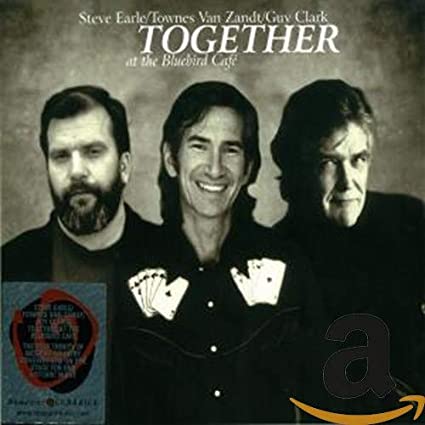
Justin Townes Earle was born beneath the heavy weight of two names. Steve Earle was his father; Townes Van Zandt was Steve’s mentor; together they were two of the greatest American songwriters of the late 20th century. Together they also struggled with drug and alcohol problems from the ‘70s into the ‘90s. We don’t yet know how Justin died at age 38 on Thursday at his home in Nashville, but he was upfront about his own battles with addiction.
Despite the weight of those names, Justin improbably emerged as one of the best songwriters of the first decades of the 21st century.
Equally improbably, he sobered up enough to reel off a string of five masterful albums from 2012 through last year’s The Saint of Lost Causes.
Like anyone trying to climb out of the shadow of a famous parent or famous mentor, it took Justin a while to find his own voice. His first three releases—the 2007 EP Yuma, the 2008 LP The Good Lifeand the 2009 LP Midnight at the Movies—showcased his already considerable skills as a wordsmith, but the records owed an obvious debt to Townes’ folk minimalism and Steve’s country-rock maximalism.
It was on Harlem River Blues that Justin found his signature sound: a kind of country blues with a lazy, pre-rock swing to it. The lyrics were a bit generically retro, and he sabotaged the record’s release by falling off the wagon, but he was clearly onto something. His breakthrough came in 2012, when he married his new sound to his earlier way with words and created the masterpiece Nothing’s Gonna Change the Way You Feel About Me Now.
´I’ve never heard it put like that,´ Justin said about this analysis in 2012, ´but, yeah, that does make sense. This record is sort of the culmination of the process. I did my folkie thing with Yuma, my honky-tonk thing with Good Life, the experimental thing with Midnight, and I’ve arrived at this more bluesy, more country, more Staple Singers-like sound….
On this album, maybe the J.J. Cale came out of me. Cale had that way of singing real softly into tube or ribbon mics, where you get really close and sing really softly and let the microphone do its work.´
In one of his greatest songs, Unfortunately, Anna, the song’s narrator is driving down Fatherland Avenue in East Nashville when he sees an ex-girlfriend walking in the rain. He rolls down the window and asks, ´Where you wanna go?´ She says, ´I don’t know, just anywhere but here.´
The song opens very quietly with acoustic guitar, pedal steel and Justin’s hushed, sad tenor. It’s as if he were reluctant to tell this story or to look in this woman’s face because it might be a reflection of his own. Like him, she’s been walking the streets alone at night. Like him, she’s been wondering how her mama has been doing in another town. Like him, she feels all the pressures of life ´pushing down on me [till] I’m about to scream.´ Like him, she’s hoping that a change of scenery will mean a change of luck.
The listener can feel the pressure building on the car’s two occupants as, slowly but surely, fiddle, bowed bass, drum brushes, trumpet and saxophone are added to the melancholy music. On the song´s extraordinary bridge, the driver watches Anna in the rear-view mirror and gives her the only answer he can, the only answer he can give himself, an unpalatable truth: ´All this time you’ve been waiting for the world to change, but unfortunately, Anna, it’s you who needs to change.´ On those last five words, all the instruments fall away but the high-pitched steel and Earle’s raspy, anguished voice.
´In Unfortunately, Anna, I was trying to show the confusion that exists among my generation,´ Earle explained at the time. ´We are a generation without connection. It’s the least-voting generation in a long time. We saw young people get really rich really fast, which created this money-hungry stampede where we stepped on anyone in our way. All the schemes that were funny when we were in our ´twenties aren’t so cute anymore.
I was an already-screwed-up kid who got a job that allowed me to run away from everything for a long, long time. Eventually, though, I built up enough crap that it started catching up with me. Most people who run figure that out eventually: If you run, you’re going to get caught. Yeah, Anna’s on the street, but what’s that guy doing driving around on the same streets? A lot of times when we try to save people, we’re the ones who need saving.´
Those who ever interviewed Justin Townes Earle found him to be ´always smart, sceptical and unfiltered´.
One interviewer said that, ´unlike his father, a legendary motor-mouth who could turn a single question into 10 minutes of oratorical showmanship, Justin got straight to the point with scalpel-slicing efficiency and never seemed to care if that point reflected well on him or not.´
If he was surprisingly candid about his parents’ gifts and failures, he was just as blunt about his own. And his parents never complained about his interview comments or his song lyrics about them.
´No one’s been offended by it yet,´ Justin told me in 2015. ´My mother and father know they’ve had a huge effect on me. I’ve never said anybody’s name, and I’ve never laid our specific scenarios. My father, during his career, has done the same thing; if anything, he’s been a little more bold. There’s nothing artistic about diary entries. You have to know the difference between emotions and emotional songs. It’s an easily misunderstood line.´
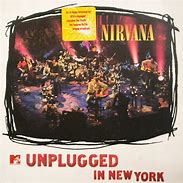
When Justin was 12 years old he saw his favourite band Nirvana play Leadbelly’s Where Did You Sleep Last Night (aka In The Pines) on MTV’s Unpluggedshow, and the youngster began to make connections between his world and his father’s world.
´Nirvana’s Unpluggedrecord changed the way I listened to music,´ Justin said in 2017. ´There was a darkness to Where Did You Sleep Last Night that I really liked…. By the time I was thirteen, my friends were listening to nothing but hip-hop, which I loved, but I had to sneak off to listen to John Wesley Harding so my friends wouldn’t give me shit about it.´
He lamented the vanishing of that neighbourhood, a victim of Nashville’s relentless gentrification and rising rents. He missed the astonishing variety of his friends then and all the wild things they did, even if they seemed crazily perilous in retrospect.
On the song 15-25, set to New Orleans funk, he claims that he has ´no regrets,´ but in the next breath admits, ´I’m probably lucky that I survived,´ because ´I could be doing 25 to life.´
´At this stage in my life,´ he said in 2017, ´I’m able to look back and see clearly that I was a dangerous, wild kid. I wasn’t music-industry arrogant, but I was definitely adolescent arrogant: ‘I can get away with anything; just watch me.’ When I say in that song, ‘I could be doing 25 to life,’ I actually could have done a lot worse than that. The person I was then contained a lot of different pieces, and some of those pieces are still here, but there’s also the need to move on. Now that I know how far I can go, I also know how far I can’t go.´
As I read this piece back, wondering how much to edit, I was at first very worried about how many voices were taking part in this dialogue, Himes, Justin Townes Earle, Craig Finn and others who would not claim to be spokesmen for their generation but who each had a unique viewpoint to show us.
Then, somewhere in the background is my voice, not as eloquent as those aforementioned, and neither of the same early forties age group as represented by not only the artists discussed here, and by my own son.
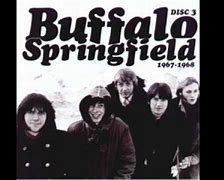
The social comment and politicising with a small p is far more sophisticated than that of my generation of sixty and seventy year olds who, in the words of Buffalo Springfield, used to carry banners mostly saying ´hooray for our side´ knowing that there was ´something happening here, but what it was wasn´t exactly clear.´
And now, when we need more of them more than ever, one of the current generation of songwriter-social commentators has gone. Justin Townes Earle !




Leave a Reply
Want to join the discussion?Feel free to contribute!